Namibia is a dream destination for travelers of all kinds. As a remote and unspoiled destination, Namibia tours are among the most popular trips and as the country attracts more and more people, sustainable and responsible travel has become such an important issue.
Preserving Namibia’s otherworldly beauty requires conscious effort from visitors, but it won’t overwhelm your vacation if you have some easy-to-implement tips like the ones we’ll share in this blog.
Sustainable travel practices in Namibia that you should know about
Practicing sustainability during your Namibia tour is not that difficult, it just requires a little basic knowledge (which you can use during your vacation and beyond). Here are some eco-friendly travel tips to help you enjoy Namibia sustainably.
Minimize plastic consumption
Namibia’s remote areas make waste management a challenge.
You can help reduce plastic pollution by bringing reusable water bottles, shopping bags and containers. You can refill your bottle from safe water sources and avoid single-use plastic where possible.
Leave no trace
The “leave no trace” principle is very important when traveling in Namibia. Whether you are hiking in the Namib Desert or camping in Etosha National Park, pack all your garbage in a bag that you can safely dispose of when you are back in civilization.
And stay on marked trails to minimize your impact on sensitive ecosystems.
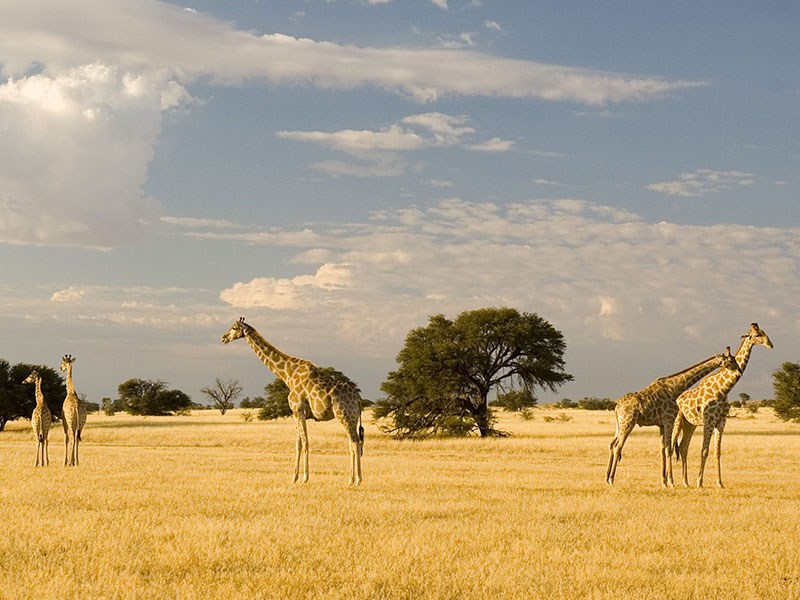
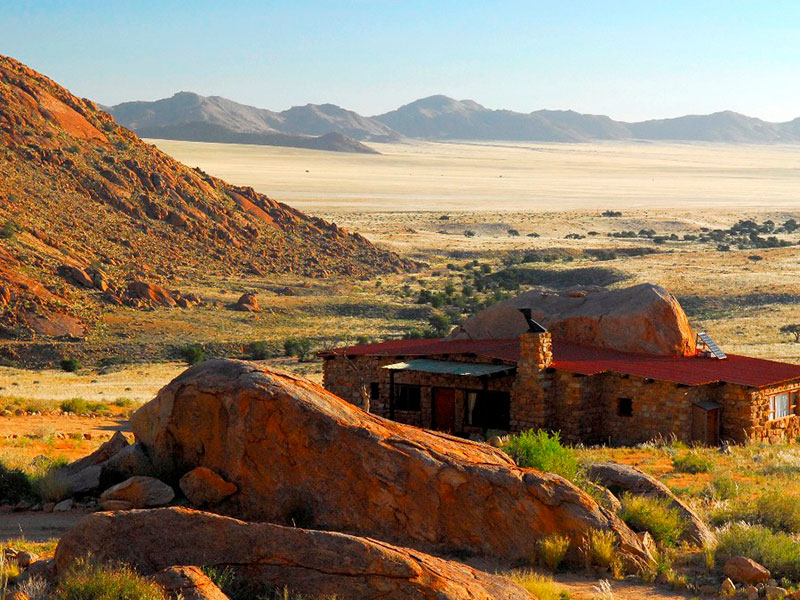
Save water and energy
Namibia is one of the driest countries in the world, which is why saving water is essential. You can save water by taking short showers, turning off taps tightly and reusing towels.
You can also save energy by switching off lights, air conditioning and electronic devices when they are not in use.
Choose eco-friendly hotels and lodges
Many accommodations in Namibia are committed to sustainability. So look for lodges and hotels with eco-certifications or those that implement environmentally friendly practices such as solar energy, water recycling and sustainable waste management.
When you stay at such places, you support their efforts and reduce your ecological footprint.
Support community-based tourism
Stay in lodges and hotels that are owned and operated by local communities.
Community-based tourism not only offers an authentic experience, but also ensures that the income from tourism benefits local people. This approach helps to preserve traditional cultures and strengthen the local economy.
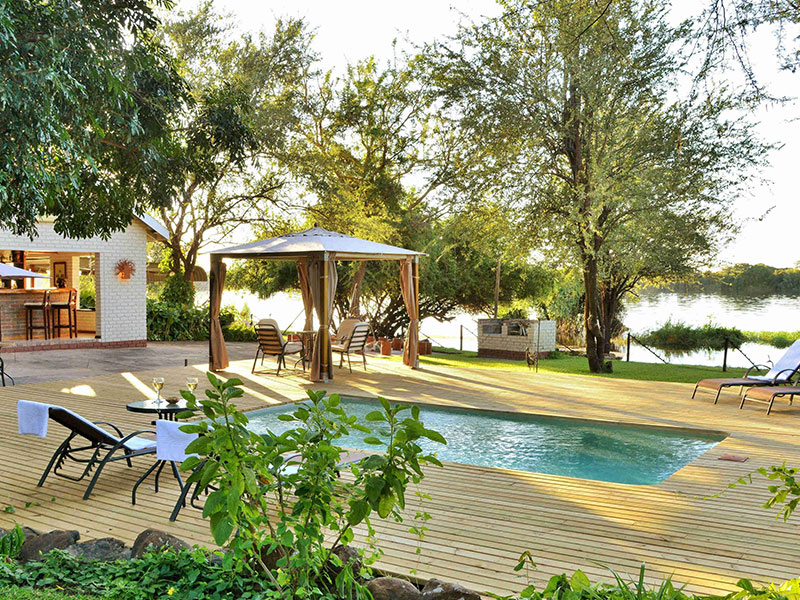
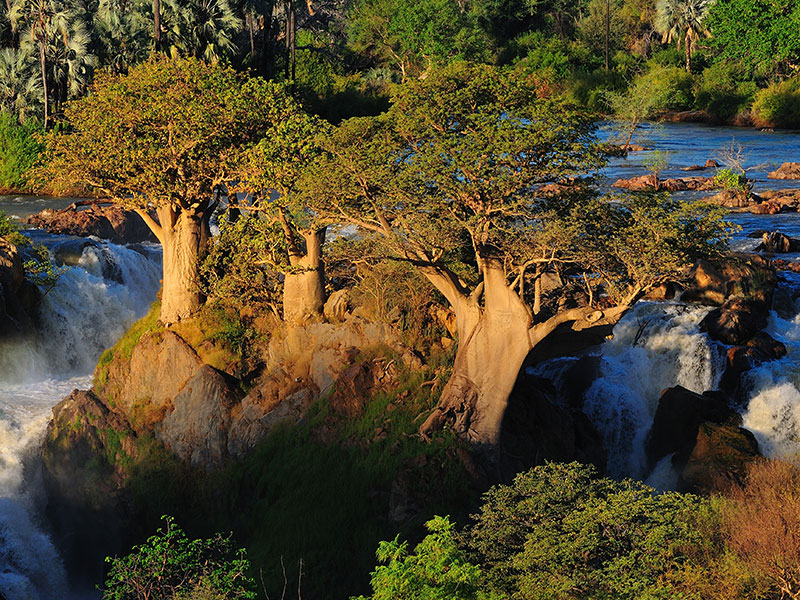
Camp responsibly
When camping, choose designated campsites that follow environmentally friendly practices.
Use biodegradable soaps and detergents and avoid washing directly in rivers or streams. You should also check that your campfire is completely extinguished and you should clean up your site thoroughly before you leave it.
Respect the wildlife
Namibia is home to unique wildlife, including endangered species such as the black rhino and desert-adapted elephants.
On a Namibia safari, you must keep a respectful distance from the animals and not disturb their natural behavior. You should also follow the instructions of your guide if you are on a guided tour to ensure a safe and responsible experience with the wildlife.
Support conservation projects
Participate in or donate to conservation projects and organizations that work to protect Namibia’s natural heritage.
Projects such as Save the Rhino Trust and the Cheetah Conservation Fund rely on income from tourism and donations for their work. Your contribution can have a significant impact on the protection of Namibia’s wildlife.
Educate yourself and others
Learn about Namibia’s ecosystems, wildlife and conservation challenges before your trip and, if you feel like it, share your knowledge with other travelers to raise awareness of sustainable practices.
Being informed enables you to make better decisions and inspire others to do the same.
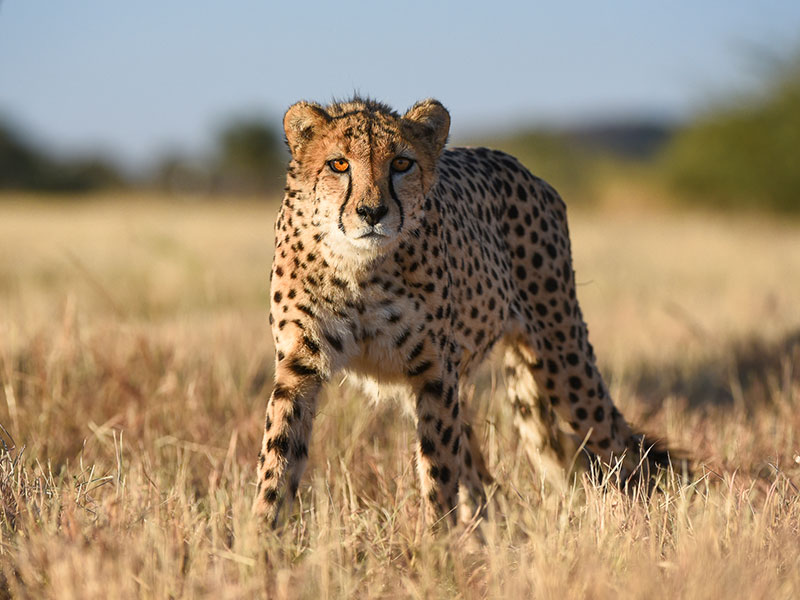

Travel with purpose
Choosing eco-friendly travel options in Namibia not only helps to protect the environment, but also enriches your travel experience.
By making conscious choices, you can help protect Namibia’s breathtaking landscapes and wildlife for future generations to enjoy.
Plan your trip out of season
Traveling out of season takes the pressure off popular attractions and helps to spread tourism more evenly throughout the year. This practice can also give you a more peaceful and intimate experience of nature.
Offset your carbon footprint
You can consider offsetting the CO2 emissions from your flights and other travel activities. Many organizations offer carbon offset programs that support renewable energy projects and even reforestation efforts. By offsetting your carbon footprint, you are helping to reduce the impact of your trip on the environment.
Choose eco-friendly Namibia tours
Choose Namibia tour operatorsthat prioritize sustainability and ethical practices.
You can do this by looking for operators that are locally owned and operated, as they are more likely to reinvest in the community and maintain responsible tourism practices. Eco-friendly Namibia tours ensure that your adventures do not come at the expense of the environment.





